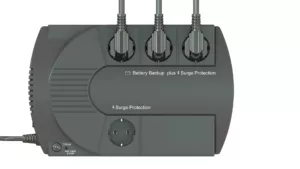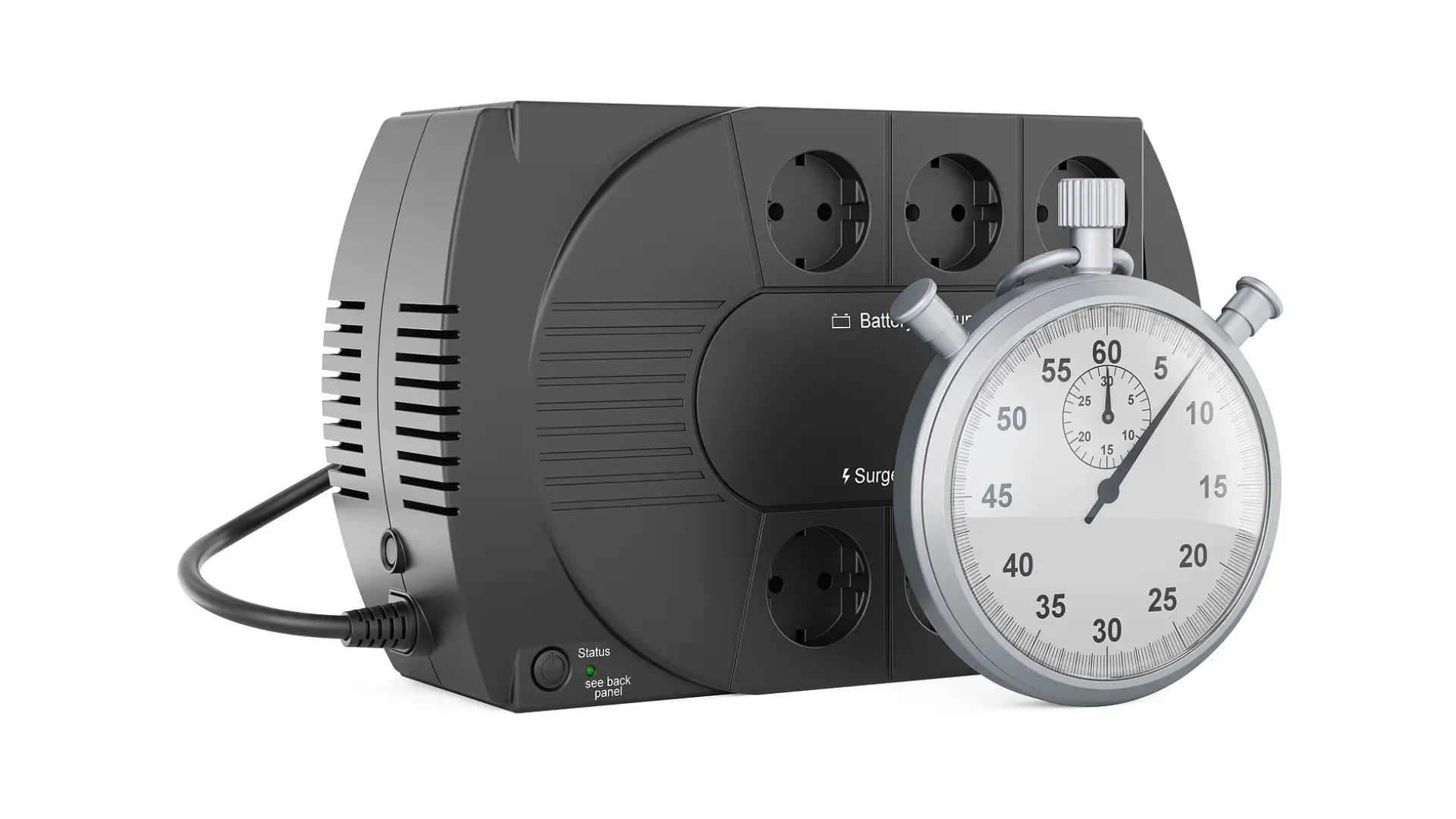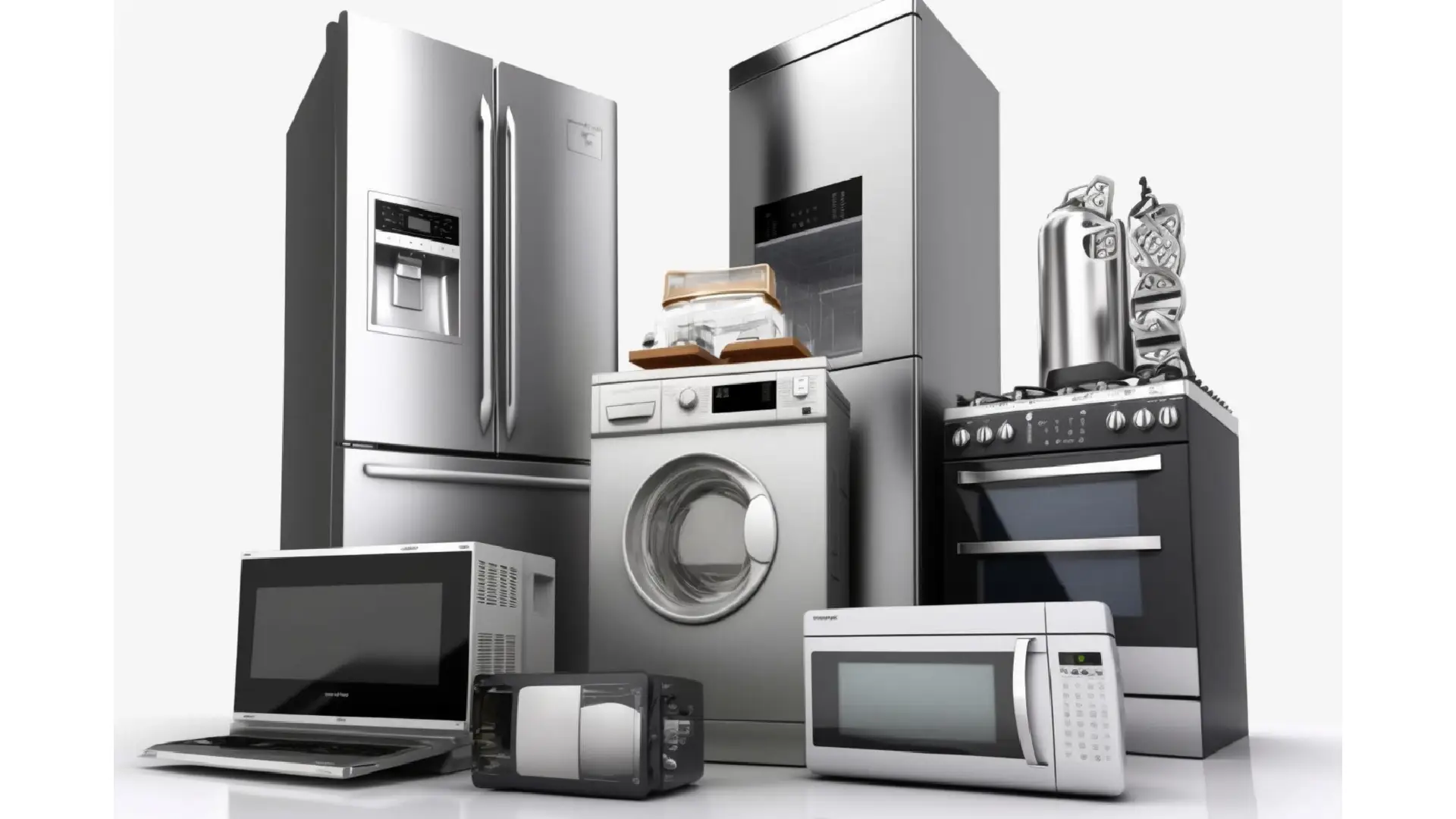
Uninterruptible Power Supply for Home Appliances
In an era where our lives are intricately entwined with technology, the significance of maintaining a constant power supply cannot be overstated. From preserving the longevity of our food in refrigerators to ensuring our comfort with HVAC systems, the role of electricity in powering our home appliances is paramount.
However, power outages, surges, and fluctuations are common challenges that disrupt this flow, potentially leading to inconvenience, appliance damage, or data loss. This is where an Uninterruptible Power Supply (UPS) for home appliances becomes not just beneficial but essential.
In this detailed guide, we'll delve into everything you need to know about Uninterruptible Power Supply for home appliances, ensuring you're well-equipped to make informed decisions to protect your valuable appliances and enjoy uninterrupted comfort and convenience at home.
Understanding Uninterruptible Power Supply for Home Appliances
An Uninterruptible Power Supply (UPS) for home appliances is a device that provides emergency power to your appliances when the input power source or mains power fails.
The primary function of a UPS is to bridge the gap between power outages until a secondary power source, like a generator, kicks in, or until the mains power is restored.
However, beyond just providing backup power, a UPS also protects appliances from power surges, spikes, and voltage fluctuations, which can be just as damaging.
Why You Need a UPS for Your Home Appliances
- Power Backup during Outages: The most apparent benefit is the backup power it provides during outages, ensuring that essential appliances like refrigerators, heating and cooling systems, and medical equipment keep running.
- Protection from Power Surges: A UPS shields your appliances from surges and spikes that can occur during thunderstorms or due to sudden power restoration after an outage.
- Data Loss Prevention: For homes with networked devices or smart appliances, a UPS can prevent data loss by providing enough time to properly shut down systems or save progress.
- Voltage Regulation: Fluctuations in voltage can harm appliances. Many UPS systems come with Automatic Voltage Regulation (AVR) technology to maintain a consistent voltage level.
- Noise Filtering: UPS systems often include noise filtering features that eliminate electrical noise interference, ensuring the optimal performance of sensitive electronic equipment.
- Improved Power Quality: A UPS can improve the quality of the power that reaches your appliances by correcting brownouts and overvoltages without switching to battery power, which can prolong the life of your appliances.
- Cost Savings: By preventing damage to appliances and reducing the likelihood of having to replace expensive equipment prematurely, a UPS can lead to significant cost savings over time.
Choosing the Right UPS for Your Home Appliances
Selecting the appropriate Uninterruptible Power Supply for home appliances involves understanding several key factors:
Power Capacity
Measured in watts (W) and volt-amps (VA), the power capacity of a UPS should match or exceed the total power consumption of the appliances it will support.
Battery Runtime
Consider how long you need the UPS to provide power during an outage. Battery runtime typically decreases as the load (total power drawn by appliances) increases.
Type of UPS
There are three main types of UPS systems – Standby, Line-Interactive, and Double-Conversion. Each offers different levels of protection and efficiency for home appliances.
Connectivity and Management Features
Some UPS systems offer smart features, such as remote management through apps, which can be particularly useful for monitoring and managing your home's power needs.
Best Practices for Uninterruptible Power Supply in Homes
To maximize the effectiveness and lifespan of your UPS, follow these best practices:
- Regular Maintenance: Perform regular checks and maintenance on your UPS, including battery inspection and replacement as needed.
- Proper Sizing: Ensure your UPS has the capacity to support the load of your intended appliances without overloading.
- Strategic Placement: Place the UPS in a cool, dry location to prevent overheating and ensure adequate ventilation.
- Battery Testing: Test the UPS battery regularly to ensure it will provide power when needed.
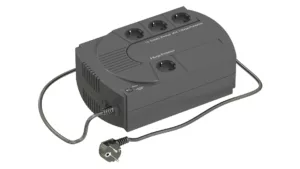
The Impact of Power Quality on Home Appliances
Understanding the impact of power quality on home appliances is crucial for homeowners to protect their investments and ensure device longevity. Power quality refers to the electrical network's ability to provide a clean and stable power supply.
Variations in power quality, such as voltage fluctuations, frequency variations, and harmonics, can negatively affect home appliances, causing everything from minor annoyances to significant damage or premature failure.
Effects of Poor Power Quality
- Appliance Malfunction: Appliances are designed to operate within a specific voltage range. Deviations from this range can cause malfunction, incorrect operation, or even stop devices from working.
- Reduced Lifespan: Frequent power surges and fluctuations can degrade the internal components of appliances over time, significantly reducing their lifespan.
- Increased Energy Consumption: Poor power quality can lead to inefficient appliance operation, increasing energy consumption and utility bills.
- Data Loss: For smart home appliances and systems that store data, poor power quality can result in data corruption or loss during unexpected shutdowns.
The Role of Uninterruptible Power Supply
An Uninterruptible Power Supply (UPS) for home appliances serves as a safeguard against the adverse effects of poor power quality. Here’s how a UPS can mitigate these issues:
- Voltage Regulation: By providing Automatic Voltage Regulation (AVR), a UPS can correct under-voltage or over-voltage conditions without using battery power, ensuring appliances receive a stable voltage level.
- Surge Protection: A UPS shields connected appliances from power surges and spikes that can occur during lightning storms or as a result of power grid switching operations.
- Backup Power: During power outages, a UPS provides immediate backup power to critical appliances, preventing shutdowns and ensuring continuous operation.
- Harmonic Filtration: Some advanced UPS systems offer harmonic filtration, reducing the noise and distortion in the power supply that can interfere with the operation of sensitive electronic appliances.
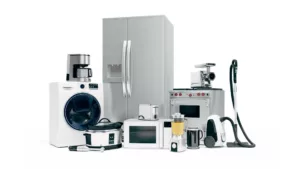
The Future of Uninterruptible Power Supply for Home Appliances: Key Trends
Advancements in Battery Technology
The shift towards UPS lithium-ion batteries offers faster charging, longer lifespan, and reduced maintenance, enhancing UPS durability and efficiency.
Integration with Smart Home Ecosystems
Future UPS systems will seamlessly communicate with smart devices, enabling automated power management and predictive maintenance notifications.
Embracing Renewable Energy Sources
Integration with solar panels and wind turbines will make UPS systems more sustainable and cost-effective, leveraging clean energy for power backup.
Development of Modular UPS Systems
Modular designs will allow for easy scalability of UPS capacity, offering a flexible and cost-effective solution to meet growing or changing power needs.
Enhanced Efficiency and Eco-Friendliness
Innovations will focus on minimizing energy loss and utilizing recyclable materials and non-toxic batteries, aiming for a smaller environmental footprint and higher energy efficiency.
FAQs on Uninterruptible Power Supply for Home Appliances
How do I calculate the total power requirement for my home appliances to select the right UPS?
To calculate the total power requirement, list all the appliances you intend to connect to the UPS and note their power consumption in watts (W), usually found on the appliance's label or manual. Add up these values to get the total power requirement. It's recommended to add a buffer of 20-25% to this total to account for inefficiencies and potential additions of appliances.
What is the difference between VA (volt-amps) and watts when selecting a UPS?
Volt-amps (VA) and watts (W) are both units of measurement for power, but they are used differently. VA is used to measure the apparent power and considers the voltage and current supplied by the UPS. Watts measure the real power and indicate the actual amount of power consumed by the appliance. Because not all the power in VA is converted into useful work (watts), it's important to know both values when selecting a UPS. Typically, a Power Factor (PF) is used to convert VA to watts (W = VA × PF).
Can I use a UPS for high-power appliances like air conditioners or heaters?
Most standard UPS systems are not designed to handle the high power requirements of appliances like air conditioners, heaters, or large refrigerators due to their high starting power surge. Specialized, high-capacity UPS systems are needed for these appliances, and it's often more practical to use alternative backup power solutions like generators for such high-power needs.
How often should I replace the battery in my UPS?
The battery life of a UPS depends on various factors, including the number of charge-discharge cycles, the environment (temperature and humidity), and the quality of the battery. On average, UPS batteries need to be replaced every 3 to 5 years. However, regularly testing your UPS's battery and monitoring its performance can provide a more accurate indication of when replacement is necessary.
Is it possible to connect multiple appliances to a single UPS?
Yes, you can connect multiple appliances to a single UPS, provided that the total power consumption of all connected appliances does not exceed the UPS's capacity. It's essential to calculate the combined wattage of the appliances and compare it with the UPS's output capacity to avoid overloading.
What should I do if my UPS starts beeping?
A UPS might beep for several reasons, such as low battery, overload condition, or a fault in the system. Refer to the user manual for specific beep patterns and their meanings for your UPS model. Generally, a continuous beep may indicate that the UPS is running on battery power, while a frequent beeping could signal an overload or fault. Addressing the cause promptly can prevent damage or failure of the UPS and connected appliances.
Can a UPS save me money in the long run?
Investing in a UPS for home appliances can save money by preventing costly repairs or replacements due to power surges, fluctuations, and outages. By ensuring that sensitive electronics and appliances are protected and have a reliable power source, a UPS can help extend the lifespan of these devices, thereby saving money over time.
Uninterruptible Power Supply for Home Appliances Conclusion
Investing in an Uninterruptible Power Supply for home appliances is a wise decision that ensures your essential appliances remain operational during power outages, while also protecting them from voltage fluctuations and power surges.
By understanding the types of UPS systems available, accurately assessing your home's power needs, and following best practices for maintenance and operation, you can select the ideal UPS solution for your home.
Remember, the peace of mind and protection offered by a UPS system can save you from the inconvenience, potential damage, and unexpected costs associated with power disruptions.
Source
https://www.energy.gov/femp/purchasing-energy-efficient-uninterruptible-power-supplies
continue reading
Related Posts
Uninterruptable Power Supplies In today's world, where technology keeps us […]
Uninterruptible Power Supply For Laptop In today's fast-paced digital world, […]
Small Uninterruptible Power Supply In today's digital age, where connectivity […]
